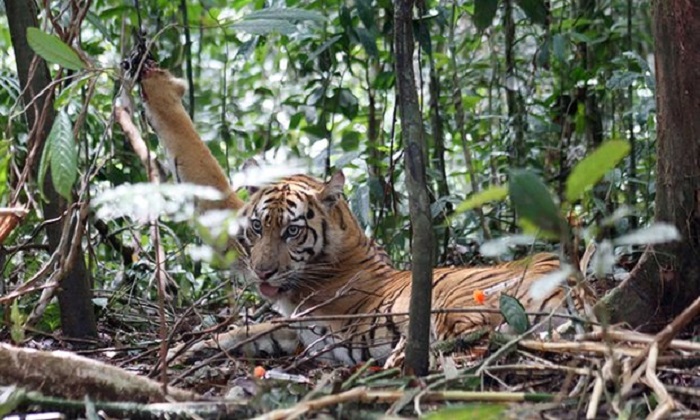“We want stronger law enforcement, we want people who transgress the law to face higher sentences,” Tachrir Fathoni, a senior ministry official who is spearheading efforts get the law passed, told AFP.
Indonesia is one of the most biodiverse nations on Earth, home to vast tracts of rainforest and a kaleidoscope of rare animals, from orangutans to tigers and rhinos.
But many have been pushed to the brink of extinction. While destruction of their habitats due to rampant logging has played a role, endangered animals are also frequently targeted by poachers who sell their body parts for use in Chinese medicine.
The government has faced criticism for inaction, with green groups saying laws relating to protected animals are not strong enough.
The environment and forestry ministry hopes the planned overhaul of the old law, which dates from 1990, can improve the situation.
The ministry will submit its proposal to parliament in the coming months, and hopes the new regulations will come into force next year.
Environmental group WWF welcomed the proposed overhaul but cautioned that it will not solve the problem of weak enforcement in far-flung parts of the archipelago, where laws set in Jakarta are often flouted.
“Having a new set of rules doesn’t mean much if the law isn’t being enforced,” said WWF Indonesia spokesman Nyoman Iswarayoga.
“Better supervision, investigating cases more intensively, and monitoring how animals are being sold are equally important.”
Critics also point out that changes to the law won’t necessarily translate to longer jail sentences. Convictions for wildlife crime are rare, and courts have been criticised for not taking poaching and trafficking seriously enough and handing down short sentences.
Fathoni insisted efforts were being made to improve enforcement, with a new senior position focusing on enforcing the law created in his ministry, and specialist police officers dispatched to every province to tackle wildlife crime.
However he admitted the Indonesian government faced an uphill battle as demand for endangered species remains high.
“As long as there is demand, the supply will keep coming,” he said.
More about:
















































